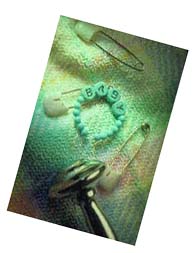
|
Bigger Tax Breaks for Families with Children
What's more, money in the Education Savings Account can now be used to cover costs related to private and public kindergarten through 12th grade. That includes supplies, computers, tutoring and after-school care, as well as the college-related costs for which the program was originally intended. But you will miss out on compound growth if you use this account to pay for minor early education expenses. So resist temptation and find another way to buy that computer, says David R. Reiser, co-author of J.K. Lasser Pro WealthBuilding. Save when you pay for college. Money you withdraw from a 529 Plan to pay for college expenses will be fully exempt from federal income taxes if you don't use any other government programs in the same year. That could save you thousands of dollars over time. One strategy would be to use money from a 529 Plan during the student's junior or senior year of college, after you've exhausted other IRS credits. This strategy will require comparing the financial advantages of 529 Plans with IRS credits. You may want help determining this, so be sure to consult with a financial adviser on this and other matters before making your decision. You should be prepared for far more complicated tax returns in the years you make withdrawals to pay for college, notes Joseph Hurley, a Pittsford, New York-based CPA and founder of www.savingforcollege.com. Get credit for your children. Parents with children under 17 (and with adjusted gross incomes of less than $110,000 for married couples, $75,000 for single parents) are eligible for the child tax credit. This benefit is used to offset owed taxes as much as $600 in 2001. By 2010 the credit will gradually rise to $1,000. Families who adopt a child will get a tax credit of up to $10,000 for adoption-related expenses. And starting in 2003 parents can deduct $3,000 in dependent care expenses for one qualifying dependent-up from $2,400. The cap on deductions for two or more dependents will rise to $6,000 in 2003-up from $4,800. And that's a lot to cheer about. New
Baby Checklist
Get
in the Savings Habit!
To save regularly, sign up for Direct Deposit. Many people like this out-of-sight, out-of-mind method of automatically sending a set amount into savings before they are tempted to spend it. To sign up for Direct Deposit, simply provide your payroll office with Navy Federal's Routing/ Transit Number, 2560-7497-4, and your child's account number. To give your savings a boost, once the balance in the savings account reaches $250 or more, be sure to upgrade it to a certificate with a higher dividend rate. |
 arents
in the U.S. got a big break with 2001's Economic Growth & Tax
Relief Reconciliation Act. The law, which delivered the most sweeping
tax changes and cuts in more than two decades, expanded tax benefits
covering children from birth through college. Here's how you can take
advantage of the most significant changes, with tips from tax experts.
arents
in the U.S. got a big break with 2001's Economic Growth & Tax
Relief Reconciliation Act. The law, which delivered the most sweeping
tax changes and cuts in more than two decades, expanded tax benefits
covering children from birth through college. Here's how you can take
advantage of the most significant changes, with tips from tax experts.